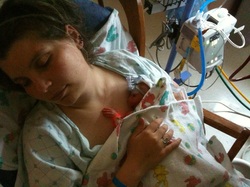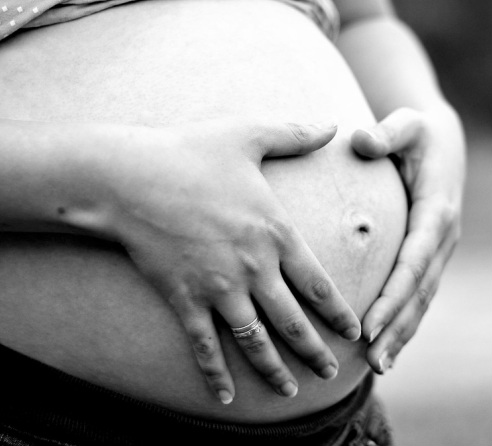|
Although there are many pregnancy complications that can occur, the following are some common complications to be aware of: Intrauterine growth retardation (IUGR): IUGR refers to poor growth of a baby during pregnancy. If the baby weighs 90% less than babies of the same gestation, IUGR is diagnosed. Preeclampsia, multiples and placental problems increase the risk for this disorder. Fetal movement and growth is closely monitored if this condition occurs. Learn more at NIH. Meconium Aspiration Syndrome (MAS): MAS occurs when a baby passes meconium while in the uterus. The baby may in turn breathe in the meconium which can cause respiratory complications. Antibiotics and ventilation are common treatments. Preeclampsia: A condition that can occur during pregnancy in which a mother experience high blood pressure and protein in her urine after the 20th week of pregnancy. Swelling, nausea and vomiting are common symptoms. The only treatment for this condition is delivery. Learn more at NIH. Placenta Previa (PP): PP is a condition in which the placenta grows in the lowest section of the womb and covers or partially covers the cervix. Bleeding is the major symptom of this disorder. Bed rest is a common treatment of PP. Learn more at NIH. Group B Strep (GBS): GBS is a severe bacterial infection that can be transmitted from mother to baby during delivery. This is a life threatening disease that causes irregular heart rate, respiratory distress and unstable body temperature. Learn more at NIH. Gestational Diabetes: This condition occurs when diabetes develops during pregnancy. This occurence can cause increased birth weight, low glucose levels and breathing difficulties in the neonate. Learn more at NIH. Information retrieved from NIH Family Spotlight Shana experienced preterm labor due to Sepsis and PPROM caused from an Incompetent Cervix. Born at 3 months early, her daughter Shiloh experienced a 94 day NICU stay. Read more about Shana and Shiloh. Comments are closed.
|

 RSS Feed
RSS Feed